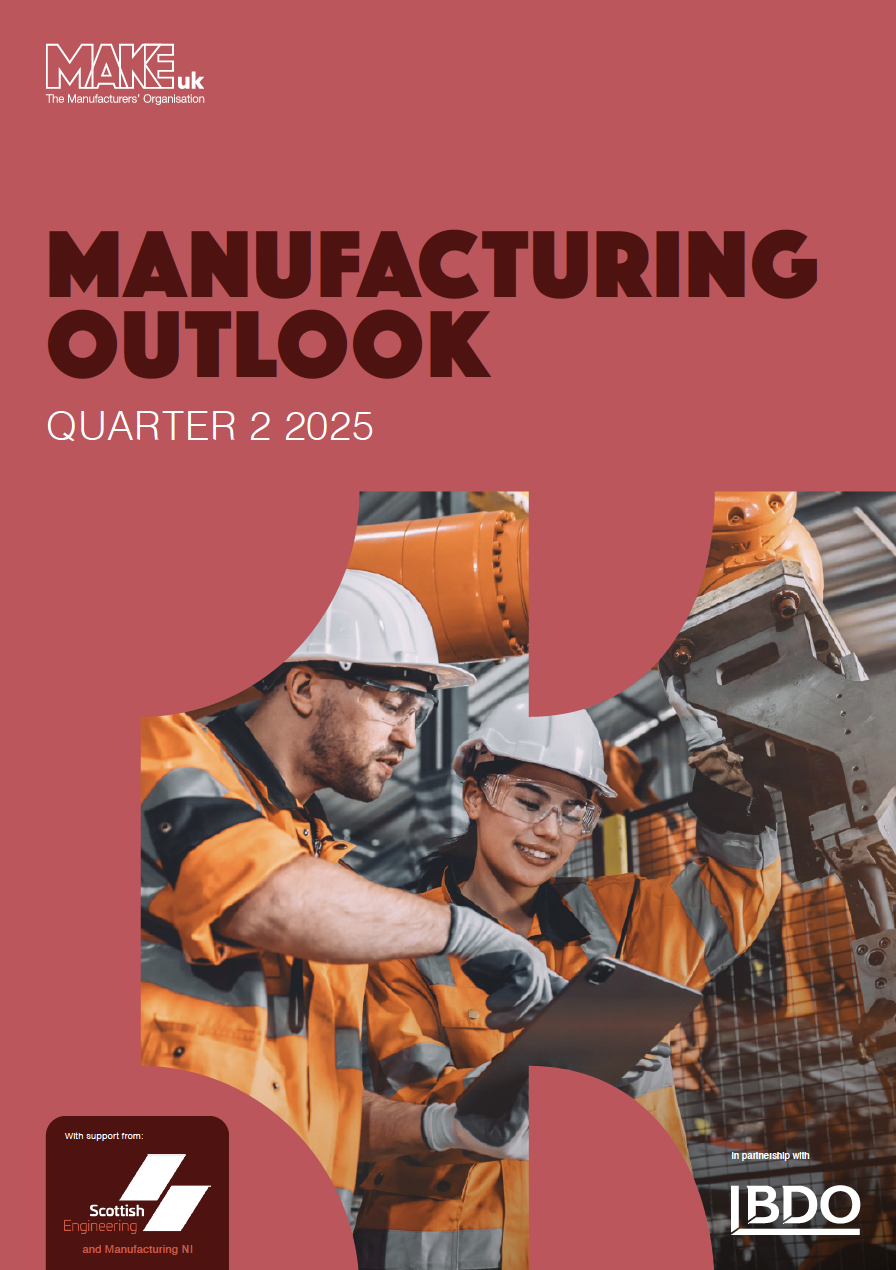4 minute read - 16th June 2025
Impact of US tariffs highlighted in latest Manufacturing Outlook report
For UK manufacturers, the opinion of the United States as a growth market for exports has fallen sharply, with the US slipping out of the top three global regions for the first time. The survey findings follow official data published last Thursday, which showed that exports to the US fell by £2bn in April, the steepest monthly decline since records began in 1997.
According to the Make UK/BDO Q2 Manufacturing Outlook survey, the US has slipped to fourth place as a growth market for UK manufacturers, with preference now shown to Asia/Oceania and the Middle East, as companies respond to tariffs and increased uncertainty. This is the first time the US has not been the second most favoured destination for export growth for UK manufacturers, behind the EU, in the history of the survey.
Separate data from a survey on the impact of tariffs conducted by Make UK shows that six in ten companies expect their export volumes to the US to be hit, while a similar number (63%) expect their business overall to be negatively impacted. Furthermore, almost a third (30%) of companies are assessing changes to their supply chains in terms of where they source from, while just 4% say they will consider setting up manufacturing facilities in the US.

Six in ten companies expect to see exports to the US impacted by tariffs, according to the latest Manufacturing Outlook survey / Picture: Getty/iStock
Make UK also referred to figures from the Q2 survey carried out by its American counterpart, the National Association of Manufacturers, which showed that optimism from US manufacturers has dropped to the lowest level since the pandemic. Trade uncertainty was cited as the biggest factor, reported by over three-quarters of companies (77%).
In the face of a weak domestic economy and tariffs, the survey also presents a downgrade of manufacturing sector growth forecasts for 2026, with an expected contraction of -0.5%, down from the previous forecast of +1%. Given the growth forecast is also negative for this year (-0.2%) following a flat year in 2024, this presents a worrying trend.
In response to the downgrading of growth prospects for manufacturing, Make UK says that the forthcoming industrial strategy must address the UK’s crippling industrial energy costs.
Seamus Nevin, chief economist at Make UK, said: “While at first glance the headline numbers may not look too bad, manufacturers are facing a gathering storm of huge uncertainty in one of their major markets, a skills crisis and eye-watering energy costs, which are providing a harsh reality for many. In response, it’s absolutely essential that the forthcoming industrial strategy takes bold measures to bring down the cost of energy and takes equally radical action to ensure companies can access the people they need to take advantage of a more competitive landscape. If these two issues are not addressed, then we will face the serious prospect of the UK accelerating into de-industrialisation.”
Richard Austin, head of manufacturing at BDO, added: “This quarter’s results are a testament to the increasingly challenging landscape our British manufacturers are operating in. The forecasted decline in growth is concerning and the delayed industrial strategy won’t help to assuage uncertainty in the sector. That said, there remains pockets of positivity. Growing output levels are proof of manufacturer’s resilience and last month’s trade deals should remove barriers as UK companies seek new trading partners and opportunities for growth. As always, they need urgent clarity and targeted investment from the government if this recovery is to continue into next quarter.”

Make UK says that the forthcoming industrial strategy must address the UK’s crippling industrial energy costs / Picture: Getty/iStock
According to the Manufacturing Outlook survey, the balance on output recovered from -1% in Q1 to +9% in the last quarter, with total orders following a similar pattern, up to -2% from -6% in Q1. Export orders have resumed the pattern of shielding a weak domestic market, increasing to +7% from +1%, while UK orders remained negative at -1% (-7% in Q1).
Looking forward, the survey shows prospects appear to be slightly brighter with output forecast to increase slightly to +11% and total orders to +13% in Q3. The recovery in exports also appears to be much firmer after the global turmoil of the first half of the year, increasing to a balance of +22%, which is above long-term averages.
Recruitment intentions remained fairly flat at +1% (-3% in Q1) while investment intentions continued on a sharply downward trend from the last quarter of 2024, barely remaining positive at +2% (+5% in Q1 and +10% in Q4 2024). Make UK has warned that if this downward trend continues, it would be highly likely that investment intentions will turn negative in the second half of the year.
